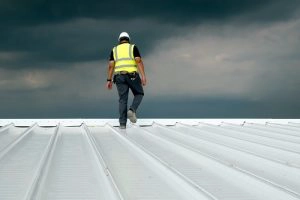Wilks Head & Eve LLP,
3rd Floor
55 New Oxford Street,
London, WC1A 1BS
020 7637 8471
enquiries@wilks-head.co.uk
Cost of Roofing Projects Set to Rocket in 2021
3rd November 2020 by Mark Aldis
Cost of Roofing Projects Set to Rocket in 2021
Author: Matt Boursnell
Several different elements of a building affect the value of the asset however one area that is often overlooked is roofing, which can prove to be a costly mistake. Following recent discussions with our roofing contractors, we have been informed that a number of roofing material manufacturers will be significantly increasing their material costs early next year, with mineral felt increasing by circa 10% and insulation increasing by as much as 15%.
The Brexit effect
We have followed up with a couple of our manufacturing contacts and understand that the increase in insulation costs is due to an increase levied on insulation ‘in the event of a no-deal Brexit in reverting to World Trade Organisation (WTO) terms’.
New tariffs and mark ups
On this basis we decided to do a little homework and had a look at the UK Goods Schedule from the WTO to find that polyurethanes used in the manufacture of insulation foam will be subject to a 6% UK Global Tariff. So where does the other 9% come from, I hear you ask? Well an increase in their manufacturing cost would result in a higher end product cost, and after suppliers and the roofing contractors themselves add their mark ups, we might not be that far off.
Supply chain issues
We will also be leaving the Customs Union, which will mean more stringent border checks that could potentially cause havoc on supply chains and affect ‘just-in-time’ production. Yes, you know all this already but how will this impact you?
Consider that circa 80% of the mineral felt used by all manufacturers comes from the same factory in Italy. The vast majority of liquid plastic roofing products are manufactured in Germany. All of these materials will be subject to more stringent border checks and therefore will be subject to higher costs.
Instruct before year end to fix prices
Those same manufacturers have however advised that were projects to be instructed before the end of the year, they would be subject to 2020 prices, even if those works do not progress until the first three months of 2021.
Is this a marketing ploy? Possibly. Costs always go up year on year, but reduced supply chains, be it from furloughed staff in manufacturing or future delays in imports and the potential impact of Brexit has caused uncertainty. Whilst this may well be a marketing stunt by manufacturers, the fact is that we have certainty of material costs now and they will not be dropping so with that in mind, marketing ploy or not, it is sensible to book in roofing work now, ready to be progressed on site next year. Of course a new roof will also carry a guarantee to give you the added confidence of a watertight building over the next 10-20 years and reduced roofing maintenance costs over that period also.
So how sensible is it to undertake roofing projects in winter? Well in a perfect world we would progress in dry summer months, but the onus would be on the contractor to deliver a satisfactory roofing job, regardless of the time of year that it is instructed, and proceeding now means that you will benefit from the current lower materials costs. On that basis it should not matter what time of year you instruct a roofer to proceed with works.
If you have any roofing projects that you were looking to undertake over the next couple of years, we would be happy to discuss product options with you and put together specifications of works for your projects. Contact mboursnell@wilks-head.co.uk or call 020 7637 8471 for more details


